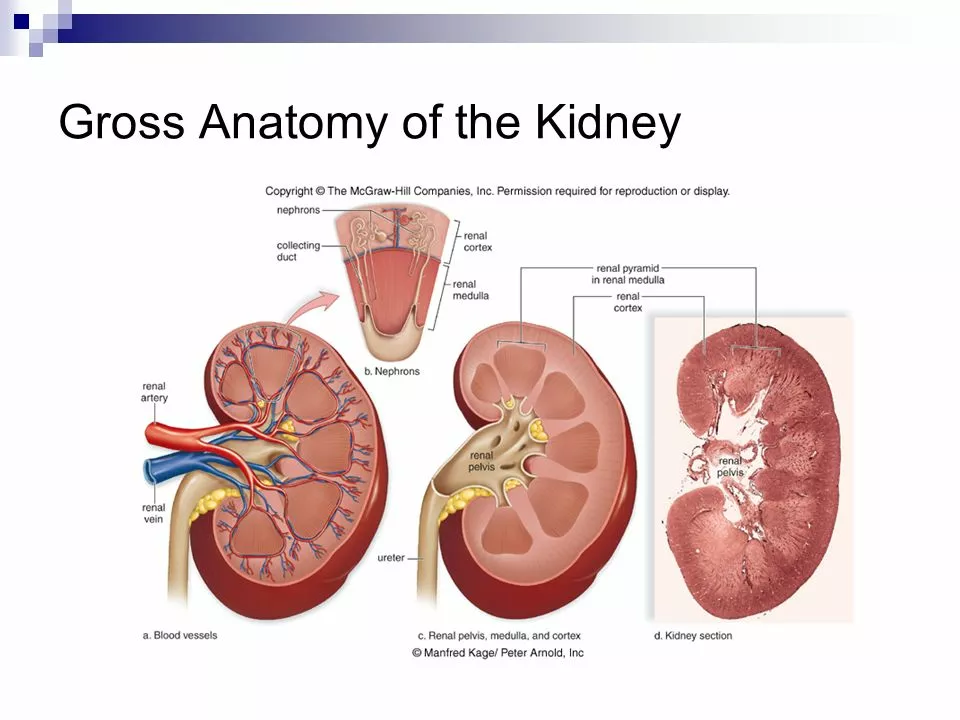Unveiling the Mystery of Calcitriol
One of the lesser-known substances in our body is calcitriol, but don't let its low profile fool you – it plays a crucial role in maintaining our overall health. As a form of vitamin D, it helps our bodies absorb calcium and phosphorus, which are essential for maintaining strong bones and teeth. But what many people don't realize is that calcitriol also has a significant impact on our kidneys. In this section, we'll delve into what calcitriol is, where it comes from, and how it's connected to kidney function.
Calcitriol, also known as 1,25-dihydroxyvitamin D3, is the active form of vitamin D in our bodies. Our skin synthesizes vitamin D when it's exposed to sunlight, and then the liver and kidneys convert it into calcitriol. Once it's transformed, calcitriol starts working its magic by regulating the levels of calcium and phosphorus in our blood, ensuring that our bones and teeth remain strong and healthy. But its role doesn't stop there – calcitriol also plays a significant part in maintaining the health of our kidneys, which we'll explore in more detail in the following sections.
Calcitriol and Kidney Function: The Role of the Renin-Angiotensin System
The connection between calcitriol and kidney function is complex and multifaceted. One of the key aspects of this relationship lies in the renin-angiotensin system (RAS), a hormone system that regulates blood pressure and fluid balance. Calcitriol helps suppress the production of renin, a hormone that can constrict blood vessels and cause high blood pressure. By inhibiting renin production, calcitriol helps maintain a healthy balance in the RAS, which in turn supports proper kidney function.
In addition, calcitriol has a direct impact on the kidneys by promoting the production of erythropoietin, a hormone that stimulates the production of red blood cells. This process is essential for maintaining healthy oxygen levels in our blood, and since the kidneys play a vital role in erythropoietin production, calcitriol's influence on this process further highlights its connection to kidney health.
Chronic Kidney Disease and Calcitriol Deficiency
One of the unfortunate consequences of chronic kidney disease (CKD) is a decrease in the kidneys' ability to produce calcitriol. As CKD progresses, the kidneys become less efficient at converting vitamin D into its active form, which can lead to a calcitriol deficiency. This deficiency can have serious implications for our overall health, as it can result in a disruption of calcium and phosphorus balance, leading to weakened bones and an increased risk of fractures.
Moreover, a calcitriol deficiency can exacerbate kidney problems by allowing the renin-angiotensin system to run unchecked, causing high blood pressure and further kidney damage. In this way, the connection between calcitriol and kidney function becomes a vicious cycle, with CKD leading to calcitriol deficiency and calcitriol deficiency contributing to the progression of CKD.
Calcitriol Supplementation: A Potential Treatment for CKD?
Given the critical role that calcitriol plays in maintaining kidney health, it's no surprise that researchers have been investigating the potential benefits of calcitriol supplementation in the treatment of kidney disease. Studies have shown that calcitriol supplementation can help reduce proteinuria (excess protein in the urine) and slow the progression of CKD. By increasing calcitriol levels in the body, these treatments can help restore balance to the renin-angiotensin system, protecting the kidneys from further damage.
However, it's important to note that calcitriol supplementation is not a one-size-fits-all solution. The appropriate dosage and form of calcitriol will vary depending on the individual's specific needs and the severity of their kidney disease. It's essential to work closely with a healthcare professional to determine the best course of action for your situation.
Protecting Your Kidneys: Tips for Maintaining Healthy Calcitriol Levels
Now that we've explored the connection between calcitriol and kidney function, you may be wondering how you can keep your calcitriol levels in check to maintain healthy kidneys. Here are some tips to help you do just that:
- Get some sunshine: Our skin produces vitamin D when exposed to sunlight, so try to spend some time outdoors each day. Just be sure to protect your skin with sunscreen to avoid sunburn and skin damage.
- Eat a balanced diet: Include foods rich in vitamin D, such as fatty fish, egg yolks, and fortified dairy products, in your diet to help maintain healthy calcitriol levels.
- Consider supplementation: If you're at risk for calcitriol deficiency or have been diagnosed with CKD, talk to your healthcare provider about whether vitamin D or calcitriol supplementation might be right for you.
- Monitor your kidney health: Regular check-ups with your healthcare provider can help you stay on top of your kidney function and address any potential issues early on.
By taking these steps, you'll be well on your way to supporting both your calcitriol levels and your kidney health, ensuring that you can enjoy a happy, healthy life for years to come.



13 Comments
S Love
April 29, 2023 AT 17:58Great breakdown of calcitriol’s role - especially the link to renin-angiotensin suppression. Most people think vitamin D is just for bones, but this is the real MVP for systemic balance. The erythropoietin connection is underappreciated too.
John Concepcion
April 30, 2023 AT 17:05so you’re telling me sunshine and salmon are gonna fix my kidneys?? wow i feel so much better already
Jim Peddle
April 30, 2023 AT 19:20Let’s be honest - this is just Big Pharma’s way of selling synthetic calcitriol while ignoring the real root cause: glyphosate poisoning from Roundup-laced food. The kidneys don’t fail because of disease - they fail because your liver is too busy detoxifying agrochemicals to activate vitamin D properly. Peer-reviewed? Sure. But funded by who?
And don’t get me started on how the FDA suppresses natural alternatives like desiccated liver extracts. The system is rigged.
Oliver Myers
May 1, 2023 AT 10:31Hey, I just wanted to say thank you for writing this - it’s so clear and helpful! I’ve been struggling with low vitamin D since my diagnosis, and this finally made sense to me. I’m going to talk to my nephrologist about checking my calcitriol levels next visit. You’re awesome :)
Katie Ring
May 3, 2023 AT 06:58Calcitriol isn’t just a hormone - it’s a constitutional regulator of systemic homeostasis. The kidney isn’t just filtering blood - it’s performing endocrine alchemy. To reduce it to ‘sunshine and supplements’ is to misunderstand the metaphysics of human physiology.
Billy Tiger
May 4, 2023 AT 03:03the whole renin thing is just a distraction the real issue is the phosphate binders they give you in stage 3 ckd they’re fucking with your gut microbiome and thats why calcitriol drops
Pritesh Mehta
May 4, 2023 AT 09:30Western medicine clings to calcitriol as if it were a panacea while ignoring the ancient Indian understanding of kidney health through rasayana and the concept of ‘mutra vaha srotas’ - the channels of urine flow. Ayurveda has known for millennia that kidney function is tied to agni, to mental clarity, to the balance of vata and kapha. To reduce this to biochemical pathways is colonial arrogance disguised as science.
And yet, even the Charaka Samhita mentions ‘Vit D’ - not by that name, of course - but as ‘arka jala’ - the essence of sunlight purified through digestion. We were here first.
Caitlin Stewart
May 6, 2023 AT 05:38I’ve been on calcitriol for two years now. My phosphate levels stabilized, and my bone pain disappeared. It’s not magic - but it’s not placebo either. If you’re CKD, talk to your doctor. Don’t wait until you’re in stage 5.
Alex Sherman
May 8, 2023 AT 04:19People think they can ‘fix’ kidney disease with sunlight and salmon? That’s cute. The real problem is that modern humans live like moles in windowless offices and eat processed sludge. We’re not designed for this. The body’s not broken - our civilization is.
Adarsha Foundation
May 8, 2023 AT 18:44I appreciate all the perspectives here. I think we all want the same thing - healthier kidneys and better understanding. Maybe the truth is somewhere between science, tradition, and lifestyle. No need to fight over it.
Emmalee Amthor
May 9, 2023 AT 04:47you know what they dont tell you about calcitriol its also linked to your mood like if you have low levels you get depressed not just weak bones and all that but like actual brain fog and sadness like its not just a bone thing its a whole system thing
Saumyata Tiwari
May 10, 2023 AT 13:48Of course the West now ‘discovers’ what Ayurveda knew - but they patent it, sell it, and call it innovation. Meanwhile, Indian farmers still drink neem-infused water for kidney cleansing. No pill needed. No FDA approval required.
Leslie Schnack
May 10, 2023 AT 20:43Wait - if calcitriol suppresses renin, and renin causes hypertension, then why do some CKD patients on calcitriol still get high BP? Is there a threshold where it stops working? Or is it just the damage is too advanced?